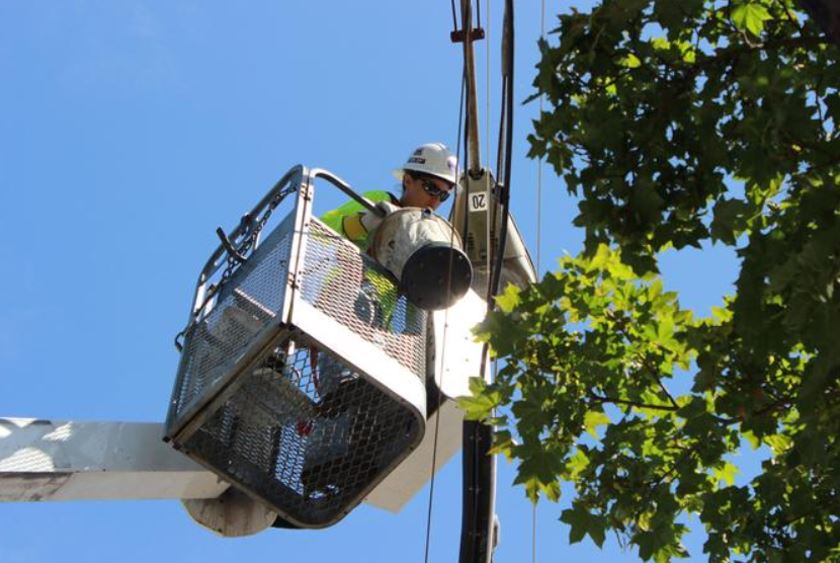
The new LED lights will save about $1.5 million each year in maintenance and energy costs.
Source: Credit to Felicity J. Mackay/Portland Bureau of Transportation
| Project Name | City of Portland LED Lights Replacement Program |
|---|---|
| Location | Portland, Oregon |
| Project Sponsor / Borrower | Portland Bureau of Transportation |
| Program Areas |
|
| Mode | Other: Streetlights |
| Description | The City of Portland replaced 46,700 streetlights from high-pressure sodium (HPS) lights to energy-efficient light-emitting diode (LED) fixtures. The project included cobra-head fixtures, the overhead fixtures found on most roadways, especially arterials and residential areas, as well as ornamental streetlights. The City's specifications were based on recommendations from the Illuminating Engineering Society and the Municipal Solid State Lighting Consortium. For the cobra-head conversion, the City specified Leotek ECobra-head fixtures with a 4000 Kelvin (K) correlated color temperature (CCT). For the ornamental streetlights, the City specified Amerlux fixtures with a 3000 K CCT. The project is expected to reduce maintenance costs and save the City 20 million kilowatt hours of energy each year. LEDs can last up to 100,000 hours or 24 years, versus HPS lights that typically need to be replaced every five years, and the new LEDs can be replaced with no tools in only 15 minutes. At the direction of City Council, future years' savings will be used as a sustainable revenue stream for streetlight maintenance, purchasing green energy, and to finance the next round of upgrades in about 20 years. Switching to LEDs not only saves money and energy, but also increases safety and visibility. LEDs eliminate dark spots between light poles and significantly reduce wasteful dumps of light directly below the streetlights. They are also designed to reduce the amount of backlighting that spills behind the streetlight pole and onto adjacent properties. In addition, LEDs do not burn out all at once like HPS light bulbs. They come as one electrical unit, so they can be replaced at once, plus improve color rendering by allowing colors to appear more natural at night. |
| Cost | $18.5 million |
| Funding Sources |
|
| Project Delivery / Contract Method | DBF, Energy Savings Performance Contract |
| Private Partner | Energy Trust of Oregon |
| Project Advisors / Consultants | Ameresco |
| Lenders | Ameresco |
| Duration / Status | In December 2012, the City Council unanimously passed an ordinance authorizing dollars to the project with construction completion in 2019. |
| Financial Status / Financial Performance | In December 2012, the City Council unanimously passed an ordinance authorizing $18.5 million from a general obligation bond to the conversion project. The City can expect to save $1.5 million every year in maintenance and energy costs, equating to an eight-year payoff time window. Additionally, the Energy Trust of Oregon contributed $817,490 in incentives and discounted pricing to help pay for conversions. |
| Innovations |
|
| Related Links / Articles | |
| Contacts | Rian Windsheimer |